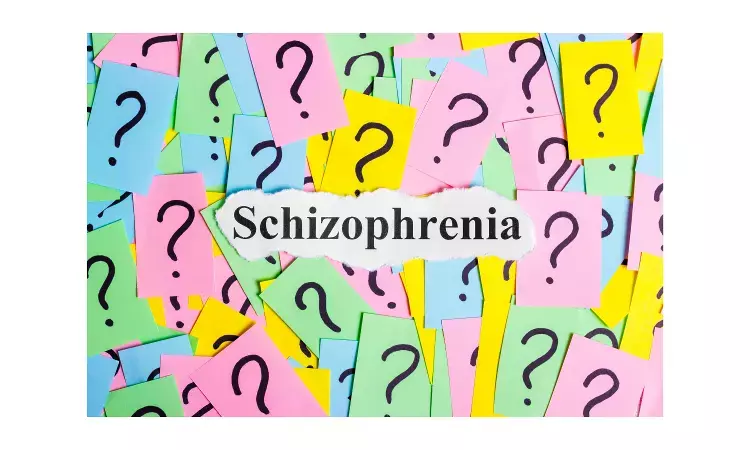- Home
- Medical news & Guidelines
- Anesthesiology
- Cardiology and CTVS
- Critical Care
- Dentistry
- Dermatology
- Diabetes and Endocrinology
- ENT
- Gastroenterology
- Medicine
- Nephrology
- Neurology
- Obstretics-Gynaecology
- Oncology
- Ophthalmology
- Orthopaedics
- Pediatrics-Neonatology
- Psychiatry
- Pulmonology
- Radiology
- Surgery
- Urology
- Laboratory Medicine
- Diet
- Nursing
- Paramedical
- Physiotherapy
- Health news
- Fact Check
- Bone Health Fact Check
- Brain Health Fact Check
- Cancer Related Fact Check
- Child Care Fact Check
- Dental and oral health fact check
- Diabetes and metabolic health fact check
- Diet and Nutrition Fact Check
- Eye and ENT Care Fact Check
- Fitness fact check
- Gut health fact check
- Heart health fact check
- Kidney health fact check
- Medical education fact check
- Men's health fact check
- Respiratory fact check
- Skin and hair care fact check
- Vaccine and Immunization fact check
- Women's health fact check
- AYUSH
- State News
- Andaman and Nicobar Islands
- Andhra Pradesh
- Arunachal Pradesh
- Assam
- Bihar
- Chandigarh
- Chattisgarh
- Dadra and Nagar Haveli
- Daman and Diu
- Delhi
- Goa
- Gujarat
- Haryana
- Himachal Pradesh
- Jammu & Kashmir
- Jharkhand
- Karnataka
- Kerala
- Ladakh
- Lakshadweep
- Madhya Pradesh
- Maharashtra
- Manipur
- Meghalaya
- Mizoram
- Nagaland
- Odisha
- Puducherry
- Punjab
- Rajasthan
- Sikkim
- Tamil Nadu
- Telangana
- Tripura
- Uttar Pradesh
- Uttrakhand
- West Bengal
- Medical Education
- Industry
Amisulpride may help alleviate depressive symptoms in patients with major psychiatric disorder

Depression is a major public health problem. Though many antidepressant medications are available, a significant proportion of individuals are known to not respond to the first treatment. Conventional first-line treatment with antidepressants, second-generation antipsychotics (SGA), and in particular amisulpride (AMS), have been used in clinical practice.
A new study by Caroline Zangani and team revealed that treatment with amisulpride is a more efficient choice for individuals with dysthymia or depressive symptoms in the context of schizophrenia. However, further studies are needed on the efficacy and tolerability of amisulpride.
The findings of the study are published in Human psychopharmacology journal.
The objective of the study was to evaluate the efficacy and the tolerability of amisulpride, both alone and as augmentation therapy, in the treatment of depressive symptoms in individuals with any major psychiatric disorder.
The study used PubMed, Embase, PsycINFO, GreyLit, OpenGrey and ProQuest up to March 2020 for randomised controlled trials focussing on the treatment of an acute depressive episode in any major psychiatric disorder. A random-effect meta-analysis was performed to synthesize the findings on depressive symptoms (primary outcome), response rate and tolerability.
The results of the study were
• A total of11 studies retrieved including 2065 patients with a diagnosis of dysthymia (eight studies), major depression (one study) or schizophrenia (two studies).
• Amisulpride 50 mg/day was associated with a larger reduction of depressive symptoms compared to placebo (standardised mean difference [SMD] = −0.70).
• It was found to be comparable to selective serotonin reuptake inhibitors (SSRIs; SMD = −0.08, CI 95% −0.23, 0.06, I2 = 0.0%), amineptine, imipramine and amitriptyline in the treatment of dysthymia (three studies, not pooled).
• In individuals with schizophrenia, amisulpride administered at higher doses (>400 mg/day) was comparable to olanzapine and risperidone (two studies, not pooled).
• In terms of tolerability, amisulpride was superior to placebo for dysthymia (odds ratio [OR] = 3.94, CI 95% 1.07, 14.48; I2 = 0.0) and comparable with SSRIs (OR = 0.94, CI 95% 0.55, 1.62; I2 = 0.0%).
Zangani and team concluded that "Treatment with amisulpride could be a valid choice for selected individuals with dysthymia or depressive symptoms in the context of schizophrenia. More studies on the efficacy and tolerability of amisulpride are needed to draw firm conclusions on its potential benefits in other psychiatric disorders."
Reference: https://doi.org/10.1002/hup.2801
Medical Dialogues consists of a team of passionate medical/scientific writers, led by doctors and healthcare researchers. Our team efforts to bring you updated and timely news about the important happenings of the medical and healthcare sector. Our editorial team can be reached at editorial@medicaldialogues.in.
Dr Kamal Kant Kohli-MBBS, DTCD- a chest specialist with more than 30 years of practice and a flair for writing clinical articles, Dr Kamal Kant Kohli joined Medical Dialogues as a Chief Editor of Medical News. Besides writing articles, as an editor, he proofreads and verifies all the medical content published on Medical Dialogues including those coming from journals, studies,medical conferences,guidelines etc. Email: drkohli@medicaldialogues.in. Contact no. 011-43720751


